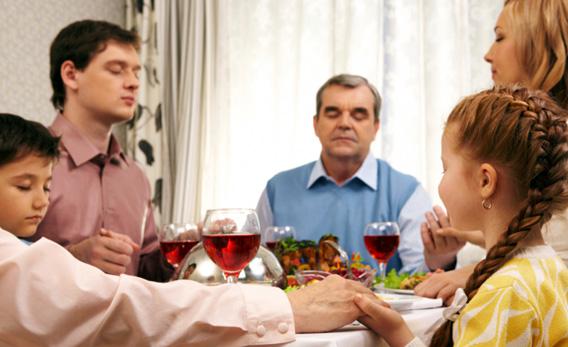Thanksgiving was my father’s holiday. He was a psychiatrist, a rationalist, and didn’t go in for religion, but a holiday where he could peel chestnuts, chop onions, and hang out in the kitchen in his flannel shirt, shooing errant family members away from the turkey before the meal, was more his kind of thing.
He died six years ago, a couple of weeks after Thanksgiving. Until then he had been the cook of the family: He baked bread, serving warm slices with butter; made soups, carrot ginger, tomato dill, watercress; he caught and cooked bass, trout, salmon, bluefish. In the summers when I was a child we picked blackberries and he made them into jam, pies. He was reserved in the extreme, taking the artful professional silence of the psychiatrist to a whole other transcendent level in all aspects of life, but he loved to feed his friends, his family, his grandchildren.
I remember the first few Thanksgivings after he died. No one mentioned him, which was strange because everyone was thinking about him. In a letter, Freud once described his father’s death as feeling like being “torn up by the roots.”
It was like having Thanksgiving without the cook. The food presented itself on the table; between us we had cobbled it together using mostly his recipes, my mother heroically stepping in with the giant turkey, but somehow it seemed insubstantial, tasteless.
How can I describe the feeling? It’s like you are gathered around a table and steaming plates are brought in but when the steam disappears there is no food. You feel like the Native Americans who sold all of their land for some beads.
It would perhaps in those first years have been more honest to abandon the whole endeavor, not to pretend that the world just carried on, when of course it did not—not entirely, and certainly not on Thanksgiving. There was a time when I envied a friend who was flying off to Jamaica, drinking margaritas with another friend on the porch of some old hotel instead of coming bang up against the loss almost cooked into this holiday.
One could argue that Thanksgiving and other baroquely traditional holidays are about the missing people, the people you used to have Thanksgiving with who are no longer there, about what isn’t, what once was, what could be. My 3-year-old learned a song at school: “There’s a turkey tom and turkey mom going gobble gobble all the day. Arm in arm, on the farm, as they make their merry way.” And of course they are dead, too.
At night, when the children are asleep, I am cooking pumpkin pies and cranberry breads. I am not a natural cook by a long shot, but I follow my father’s recipes very carefully and hope everything turns out OK. I am using a tiny pint-sized Cuisinart, which I feel sure my father would not find sufficiently efficient, and I can’t always figure out how to close it properly so it turns on.
I am not sure what it is about his handwriting, but seeing his scrawled notations on a recipe still slays me. It is like the years of cotton packing, of insulation, of functional carrying on melt away with the markings “½ cup of sugar” or “¾ tsp nutmeg.” It is just a recipe, I try to remind myself, but some complicated whipping together of his absence and presence floors me anyway. While the breads cook, I go out onto the deck outside my kitchen, where it is very dark and very cold and a little wild-seeming.
For form’s sake, it would be satisfying or reassuring to end by saying that, at the Thanksgiving meal, with the family seated around a table decorated with chocolate turkeys and magic-markered place cards, my father is there; you know, the pie bakes, the nutmeg smell is in the air, and a sense of warmth and being cared for descend, and I suddenly understand that he is, in a complicated semi-mystical way there but that’s not how it is. He is very definitively not there. I am sitting torn up by the roots in front of a very big plate of food.
But I can say this: For the sudden panic of his absence, the almost unbearable richness of memory, the return of fresh grief that I have lost touch with or don’t think of every day, I am thankful. Does one want to lose that startled, consuming loss? Does one want to competently carry on? Does one want to feel fine the way you do after a certain amount of time, in spite of yourself? The English writer Vera Brittain wrote, “at a certain point the living have to break faith with the dead.” And I get this, I really do. But for one day I don’t. This Thanksgiving contains all the ones that came before.
